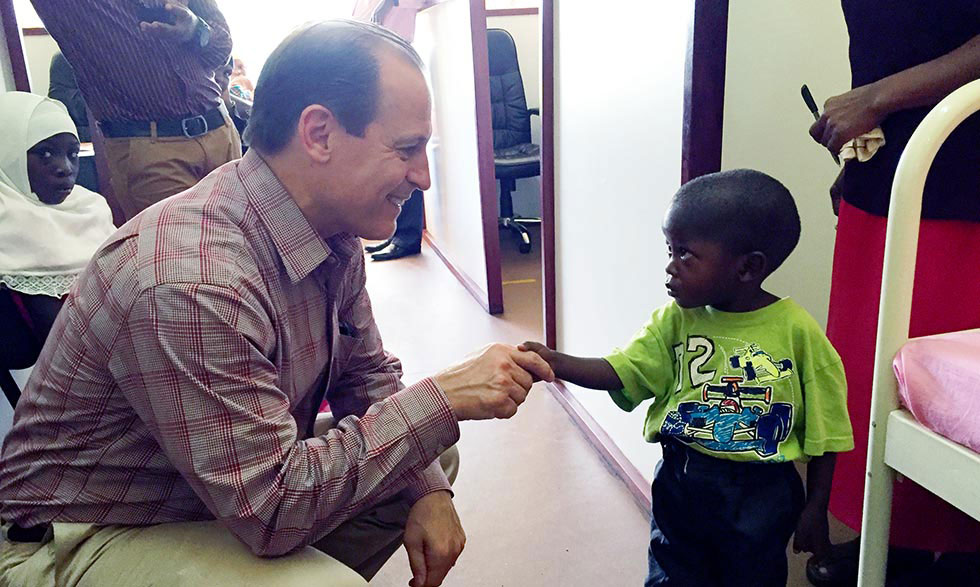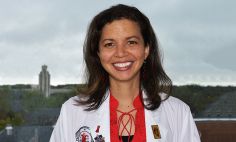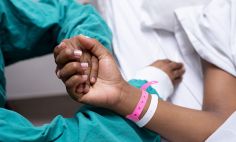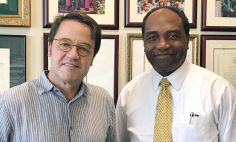Health Topics

Treating sickle cell disease in children around the world
Hydroxyurea helps young patients from the Middle East to Jamaica
Russell E. Ware, M.D., Ph.D., had been researching sickle cell disease (SCD) in the U.S. for about 10 years when he decided to go to the Middle East to better understand the disease's impact around the world.
Dr. Ware is the co-executive director of Cincinnati Children's Hospital's Cancer and Blood Diseases Institute. His research is supported by NIH.
When he got to the Middle East, Dr. Ware was surprised to see that SCD had become a global disease. It was not just limited to those with African or Hispanic backgrounds like it was in the U.S.
Through his research, Dr. Ware learned there are also many people with SCD in the Caribbean, India, and Asia.
"Most people don't know that all newborn babies in the U.S. are tested for SCD."
- Russell E. Ware M.D., Ph.D.
Helping those with less
Dr. Ware decided to find a way to treat people with SCD in other countries that had little or no resources to do so.
"We've been developing partnerships in these countries to help people with no resources," he says. "We diagnose them, get their immunizations up to date, and give them Hydroxyurea. It's a work in progress."
Research shows that people with sickle cell disease are more susceptible to malaria. But when treated with hydroxyurea, a pill that helps relieve pain and can help patients live longer, the risk of malaria decreased by more than half.
In sickle cell patients, hydroxyurea also prevents strokes and brain problems. It does this by allowing blood cells to stay round so that oxygen can be carried freely through the blood system. Better blood flow equals less pain.
"In Africa, 60% to 90% of kids with sickle cell disease die by the age of 5," Dr. Ware says. "Most of them die without knowing they had sickle cell. A small intervention like Hydroxyurea can make a big impact on mortality [or incidence of death] in places where it is really high."
Using hydroxyurea in Jamaica and Africa
Thanks to NIH funding, Dr. Ware and his research team are able to treat children in Jamaica and Africa at no cost to the families.
"We've been pleasantly surprised, too," Dr. Ware says. "Children take the medicine regularly."
Dr. Ware would like to see hydroxyurea, which has been used for 20 years with little to no side effects, become more affordable and available to everyone globally.
He says he wants to see all children receive a faster SCD diagnosis and better treatment, especially in areas with little or no resources.
"A lot has changed in SCD research in 30 years," Dr. Ware says. "Most people don't know that all newborn babies in the U.S. are tested for SCD."
He recommends that people with SCD go to a sickle cell specialist in addition to their family doctor. "Sickle cell patients need specialists who can enroll them in clinical trials," he says. "This is a serious disease."







